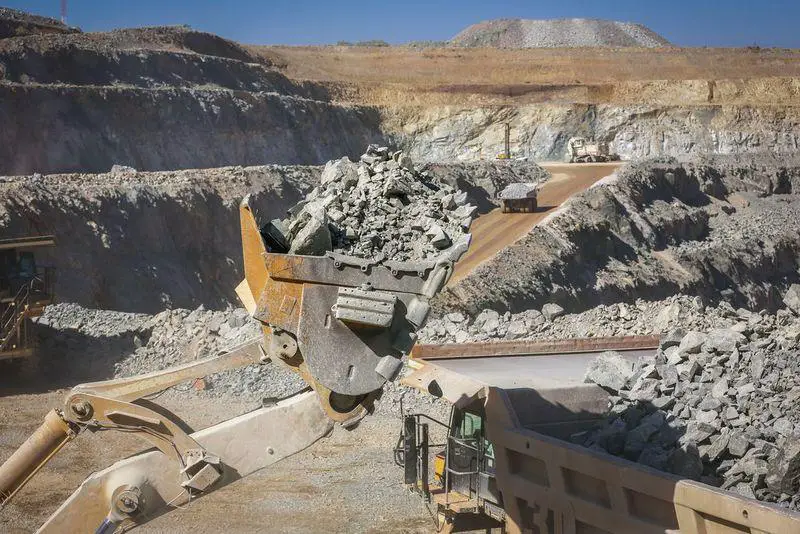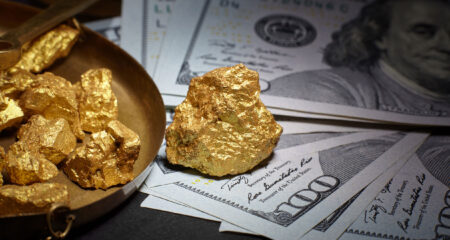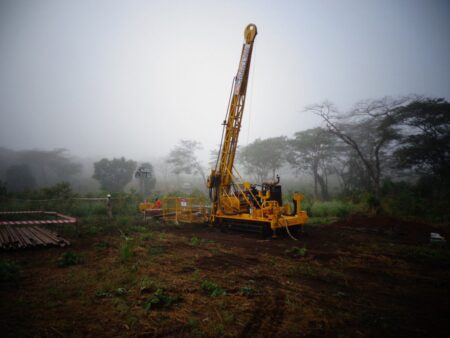Barrick Gold Corporation—one of the world’s biggest gold miner, has delivered its first tranche $100 million of the $300 million settlement agreed with the Tanzanian government, regarding the disputes it inherited from Acacia Mining.
According to the miner’s statement, the company’s President and chief executive Mark Bristow, these were landmark events that demonstrated the strength of the partnership the company forged earlier this year through the formation of the jointly owned Twiga Minerals Corporation, which oversees the management of Barrick’s operations in the country.
“This is a striking example of what a true partnership can achieve in building a sustainable business capable of creating long-term value for all stakeholders,” he said.
The settlement tranche originates from the 2017 dispute, where Acacia Mining (Barrick’s subsidiary, taken over last year) was found to be violating several operating procedures, forcing the government of Tanzania to ban the exportation of concentrate.
Hence, the dispute led to the formation of a joint-company—Twiga Minerals Corporation to managed three miners in Tanzania, Bulyanhulu, North Mara and Buzwagi. Thus, the settlement was also fenced around sharing future economic benefits from miners on a 50-50 basis.
“I congratulate Barrick for implementing our agreement and call upon other mining firms to emulate the move in ensuring a win-win situation,” said the Minister for Finance and Planning Dr Philip Mpango who received a dummy cheque from the company’s representatives, according to information from The Citizen.
Further, Barrick’s statement also indicated that “In terms of its framework agreement with the government, the shipping of some 1,600 containers of concentrate stockpiled from Bulyanhulu and Buzwagi resumed in April and the first $100 million received from the sale has gone to the government. Barrick said all material issues had been dealt with or were being finalized. This initial payment will be followed by five annual payments of $40 million each”
Other Barrick settlement issues
Regarding land compensation issues, a different approach has been taken, whereby instead of the mine handling it, the process “is being overseen by a committee representing Twiga, the government, the local authorities and the affected communities. This will ensure that the process is transparent and that issues are dealt with fairly and promptly” Barrick said.
Hence, according to the miner statement, 90 per cent of the outstanding land claims at North Mara have been settled with payment scheduled to begin yesterday. Henceforth, a commercial bank has been appointed to provide financial training to the compensated landowners.
Further, Barrick Gold highlighted that the basis of the settlement, which also provides for future claims, was produced during several weeks of close and constructive engagement between Twiga, the Ministry of Mines, the Ministry of Land, the local authorities and the community.
As environmental rules were violated, operationally since taking over North Mara, Barrick has focused on improving the mine’s water management with special emphasis on its tailings storage facility.
“Barrick’s intervention had put an end to 15 years of poor water management on-site and has ensured that going forward its environmental risks are properly contained in line with the group’s best practice standards,” the statement indicated.
Also, the joint-company—Twiga Minerals has resumed exports of gold concentrate from Tanzania as the ban was lifted by the government.
READ:Barrick to gain up to $280 million after gold export ban was lifted











